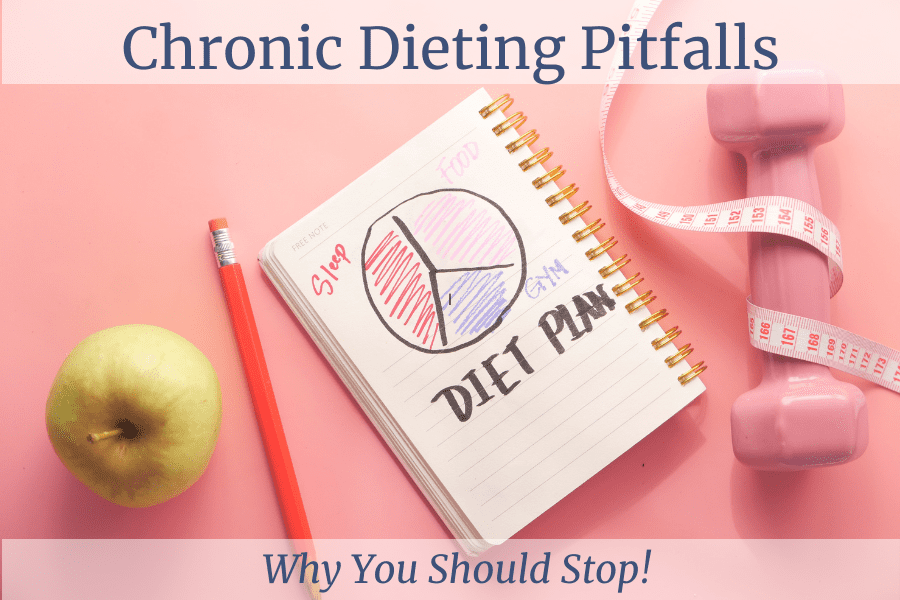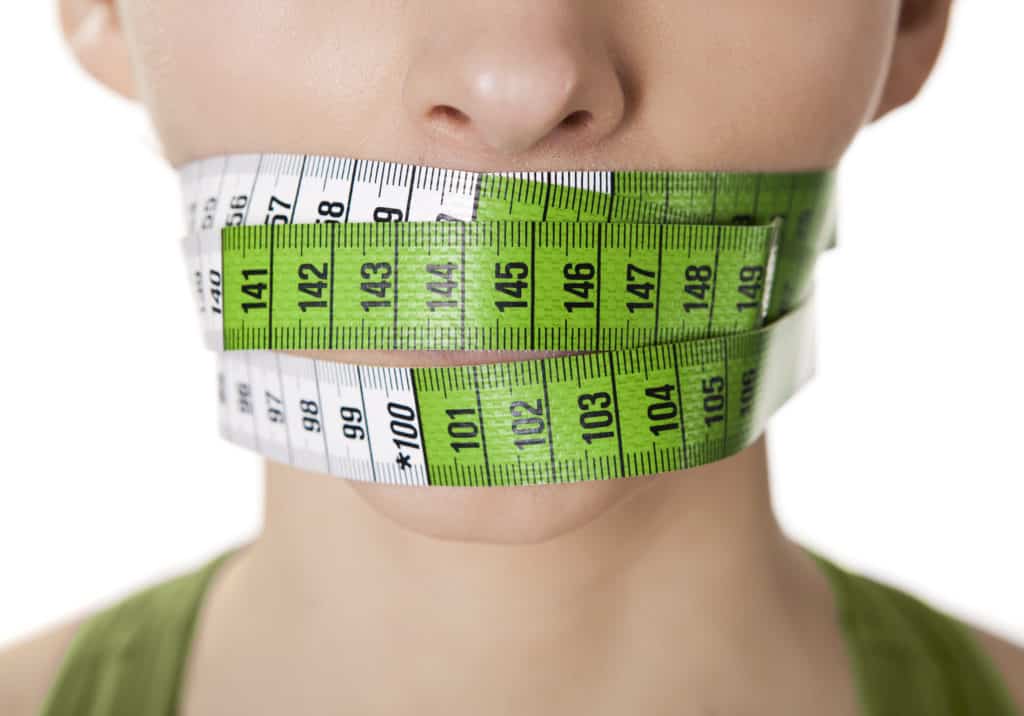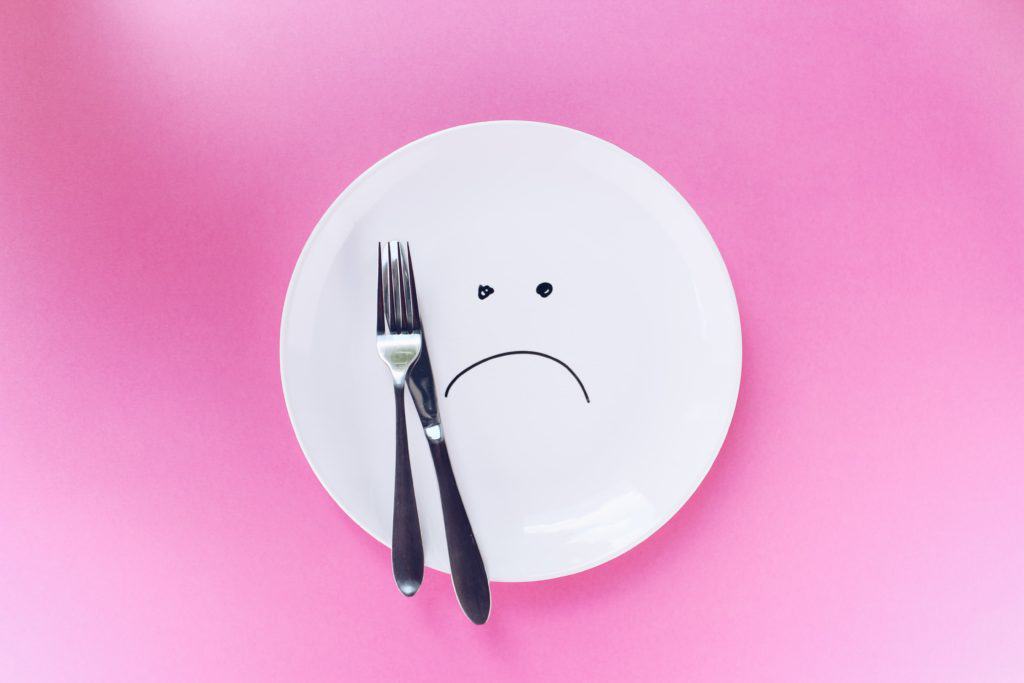
Chronic dieting truly is a “thing” and it’s the perfect storm of something that may have started out as a pursuit of wellness, yet backfired. Approximately 45 Billion Americans go on a diet each year, and Americans spend an estimated 33 billion dollars on weight loss products. These are staggering numbers AND yet still around 70 percent of Americans are considered overweight.
That math does not seem to add up but what it does prove is that: Diets do not work!
Diet culture has infiltrated so many facets of our everyday lives. Dieting has become ubiquitious and often ongoing as a normal way of life. We will discuss its pitfalls and why chronic dieting can actually be harmful to our health.
What Is Dieting?
The word “diet” originates from the Greek word “diaita”, literally meaning “manner of living”. While there are many forms of dieting, including necessary medically prescribed diets, such as renal diets for kidney disease, the most common form of dieting comes in some type of dietary restriction with the goal being to improve one’s health and/or to shrink ones body in the omnipresent pursuit of thinness. We will be focusing on the later in this discussion.
Dieting implies restriction. The restrictions can lead to both biological changes, as well as, psychological ramifications. One would be hard pressed to find true evidence that the act of dieting leads to long term weight loss. Ironically, that is the reason that most people not only start, but continue to diet. This unrealistic pursuit of thinness can lead to a life of chronic dieting.
The American Journal of Clinical Nutrition defines Chronic Dieting Syndrome as: “going on and off of calorie restricting for over two years”, as well as being “obsessed with weight and size.” It may be a surprise that we even consider Chronic Dieting a “syndrome,” since it’s such a culturally acceptable reality. Everyone is on a diet, and if not: we eye them with suspicion…
The institute for the PSYCHOLOGY of eating
Harmful Effects of Chronic Dieting

Let me ask you a question.
If you went to the doctor for a medical condition and the doctor told you about this widely used medication that could solve your medical condition, wouldn’t you be so relieved? The the doctor goes on to tell you that this pill is readily available and you can get it ANYWHERE. The chances of it working for the first 6 months are pretty good but then as time goes on around 95% of those that take this medication regain all the symptoms they originally had and in most cases, the symptoms actually got worse.
What would you do?
Chances are you would walk out of the doctors office feeling not only annoyed at the doctor for giving you such false hope and so confused why they would even offer such a “treatment”. This is NO different than a doctor giving you the medical advice to “lose weight.” In theory, weight loss may alleviate some health issues, but we know that in up to 95% of those that engage in intentional weight loss regain the weight, and often more, within 5 years. That is no different then the pill the doctor offered in the above illustration! Yet, medical professionals do this every. single. day. AND chronic dieting can lead to many medical issues.
Physical Dangers Of Dieting
Here is a list of some of the physical dangers of chronic dieting:
“Yo-Yo” dieting – the term coined for the going on and off diets often resulting in the loss/gain cycle has been proven to have negative health implications. Some examples are an increased risk of heart disease, decrease to ones metabolism and menstrual disturbances.
Our bodies are miraculous beings and when you diet they do not know the difference between trying to lose weight to fit into a dress for a wedding OR that a famine is coming up. Our bodies go into “starvation mode” when restriction occurs. In the most simplistic terms, the dieting slows down your metabolism.
When one diets, they often miss out on important nutrients in their diets. One common example is calcium and this can shows up with decreased bone density.
Dieting can lead to physical symptoms. Some common examples are loss of muscular strength and endurance, thinning hair, dehydration, fainting, and decreased heart rate.
Psychological Ramifications of Dieting
Dieting can also affect your psychological state. At the very beginning of a diet, one may feel very in control. You may have a set of rules to follow and it is exciting to think about the positive results. Weight loss often occurs in the short term. Even if you are feeling deprived, you may not care because the results outweigh the hunger (no pun intended!)
Did you ever notice that when you are on a diet that you are not as “sharp” or “quick?” It has been shown that those on restrictive diets can have slower reaction times and a harder time concentrating than non-dieters. Makes sense, right?
Numerous studies link dieting to increased levels of depression, low self-esteem and increased levels of stress.
Dieting can lead to an eating disorder, in those that are genetically predisposed to eating disorders.
You might believe that adopting a weight loss diet is a great idea, except according to the American National Eating Disorders Association, 35% of ‘normal dieters’ tend to become pathological dieters. The organisation also suggests that over 20% of people who diet end up developing eating disorders. Dieting may not be the only reason why someone is bound to get an eating disorder, but it can be a trigger.

So Now What?
Letting go of the “idea” that dieting may work is REALLY hard. Often people feel they have failed and they are quitting. That could not be further from the truth.
The diets failed. Not you.
And everywhere we turn we are infiltrated with diet culture (check out my post “What Is Diet Culture” ). It can feel like you are in the minority if you go against the grain and give up the diet mentality and actual act of dieting!!! Be compassionate with yourself during the transition. Think of how many years you spent dieting and all the mental shifts that have occurred – this takes time to unpack.
Yet, the other side free from restriction and is SO freeing.
I have written a few posts about how to STOP dieting and a whole series on Intuitive Eating. These will be huge assets to keep in your toolbox as you enter the “diet free” zone.
If you are someone who likes to have more information, like myself, I have a post about my favorite anti-diet/intuitive eating books that will be helpful in your journey to reclaiming your life. Check out “The Top 5 Books on Intuitive Eating.”
This will take time, but so worth it!


